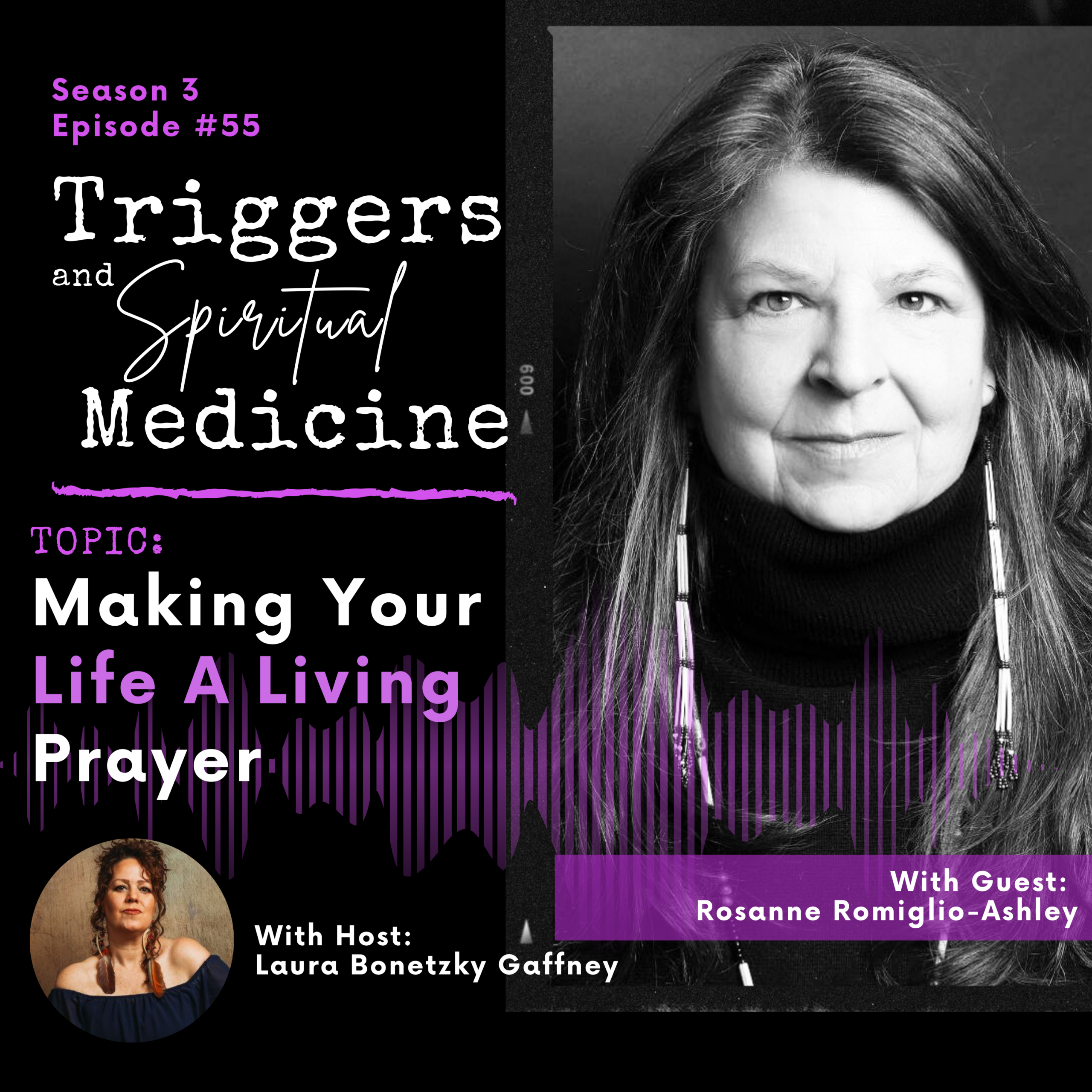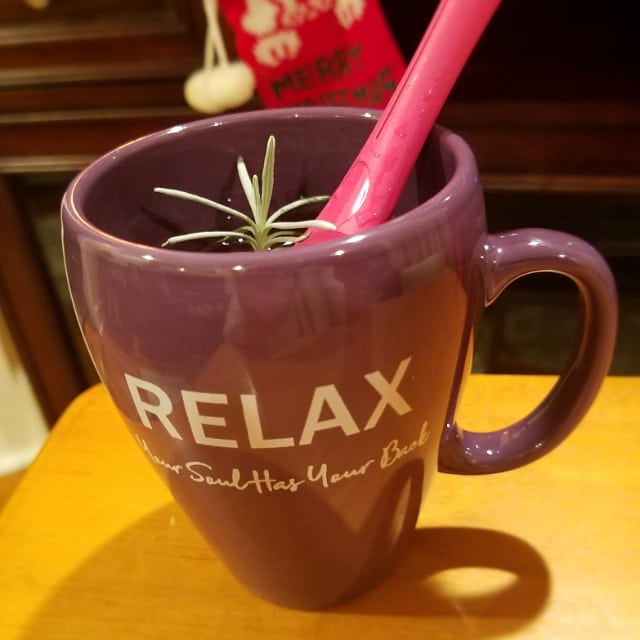
Why Ashwagandha Root Could Be The Cure For The Western Epidemic of Stress Related Illness
I have decided to post about this important herb as a resource for our growing community searching for healthy alternatives. Over recent years, I have seen how well it works for so many especially those with diagnosed with PTSD, anxiety, addictions, and sleep issues that have astounded me.
I began talking to others and exploring success ratios to my astonishment, which led me to begin working with many practitioners in the traditional broken American healthcare system educating them regarding my experiences personally and professionally. I am pleased to see some doctors, nurse practitioners and psychiatrists/licensed mental health prescribers beginning to consider this herb as a viable alternative to barbiturates, tranquilizers, anti-depressants, or other drugs such as the gabapentin.
As a matter of fact, I was recently diagnosed with chronic autoimmune thyroiditis, and I had stopped taking the Ashwagandha root personally too. As a result, I have decided as part of my own personal treatment plan to start taking this again (including my daily meditation, thyroid anti-inflammatory diet, jikiden reiki practice, and mindfulness as well as increasing my daily Vitamin D3 to attain a more optimum level).
So, here is more information compiled from some trusted sources (listed below) for you regarding this amazing herb.
Disclaimer: Always consult with your healthcare practitioner before using supplements if you have any health conditions.
What is it?
Ashwagandha, one of the most powerful herbs in Ayurvedic healing, has been used in India for nearly 5,000 years for a wide variety of conditions. One of the best known is its use as an adaptogen, meaning that it helps you manage emotional and physical stress.
The name Ashwagandha is from the Sanskrit language and is a combination of the word ashva, meaning horse, and gandha, meaning smell. The root has a strong aroma that is described as “horse-like.”
In Ayurvedic, Indian, and Unani medicine, ashwagandha is described as “Indian ginseng.” Ashwagandha is also used in traditional African medicine for a variety of ailments. Don’t confuse ashwagandha with Physalis alkekengi. Both are known as winter cherry.
A member of the Solanaceae family, or nightshade family, ashwagandha is related botanically to potatoes, pepper, and tomatoes.
Why Use Ashwagandha?
Do any of these common symptoms sound familiar?

- Stress
- Fatigue
- Difficulty concentrating
- Poor memory
- Trouble sleeping
- Low libido
- Frequent illness
- Anxiety
- Low endurance (mentally or physically)
- Joint pain
- Neurological condition
The use of ashwagandha can help alleviate these symptoms and support an energetic and rejuvenating sense of well-being.
Ashwagandha as an Adaptogenic Herb
In Ayurveda, there are specific herbs with adaptogenic benefits—ashwagandha is one of them.
Adaptogens are substances (a combination of amino acids, vitamins, and herbs) that modulate your response to stress or a changing environment. Adaptogens help the body cope with external stresses such as toxins in the environment and internal stresses such as anxiety and insomnia.
One of the attributes of ashwagandha is its ability to induce calmness and clarity by regulating neurotransmitters such as serotonin and the stress hormone cortisol.
One of the attributes of ashwagandha is its ability to induce calmness and clarity by regulating neurotransmitters such as serotonin and the stress hormone cortisol.
Research has shown that consuming ashwagandha may not only reduce cortisol levels but also, as an adaptagen, can “substantially” reduce chronic stress to help your body adapt to and alleviate the stomach-churning anxiety stress can cause. (Mercola)
Research indicates there’s a likelihood that ashwagandha may be useful for helping patients in opioid withdrawal as well as reducing or eliminating dependence on benzodiazapene drugs such as Xanax and Valium.
Benefits of Ashwangdha
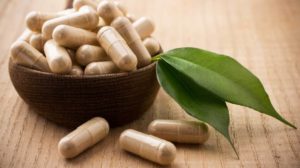 Ashwagandha contains many useful medicinal chemicals, including withanolides (steroidal lactones), glutathione (powerful antioxidant), alkaloids, choline, fatty acids, amino acids, and a variety of sugars.
Ashwagandha contains many useful medicinal chemicals, including withanolides (steroidal lactones), glutathione (powerful antioxidant), alkaloids, choline, fatty acids, amino acids, and a variety of sugars.
While the leaves and fruit have valuable therapeutic properties, the root of the ashwagandha plant is the part most commonly used in Western herbal remedies.
Medical researchers have been studying ashwagandha for years with great interest and have completed more than 200 studies on the healing benefits of this botanical.
Animal studies have found constituents of the herb, including alkaloids, steroidal lactones, and saponins, to reduce inflammation and calm the nervous system.
Ashwagandha, today, is used for arthritis, anxiety, bipolar disorder, attention deficit hyperactivity disorder (ADHD), balance, obsessive-compulsive disorder (OCD), trouble sleeping (insomnia), tumors, tuberculosis, asthma, a skin condition marked by white patchiness (leukoderma), bronchitis, backache, fibromyalgia, menstrual problems, hiccups, Parkinson’s disease, and chronic liver disease. It is also used to reduce side effects of medications used to treat cancer and schizophrenia. Ashwagandha is used to reduce levels of fat and sugar in the blood.
Ashwagandha is known to help people strengthen their immune system after illness, chemotherapy, or surgery. It is a highly effective, evidence-based remedy for anxiety and stress—by lowering cortisol levels and mimicking the inhibitory neurotransmitter GABA.
Some people also use ashwagandha for improving thinking ability, decreasing pain and swelling (inflammation), fertility problems in men and women and also to increase sexual desire.
Ashwagandha is applied to the skin for treating wounds, backache, and one-sided paralysis (hemiplegia).
Some key examples of the healing effects of Ashwagandha are:
- Protects the immune system
- Helps combat the effects of stress
- Improves learning, memory, and reaction time
- Reduces anxiety and depression without causing drowsiness
- Helps reduce brain-cell degeneration
- Stabilizes blood sugar
- Helps lower cholesterol
- Offers anti-inflammatory and analgesic benefits
- Contains anti-malarial properties
- Enhances sexual potency for both men and women
- May be an effective anti-tumor agent
- Promotes new nerve growth
How does it work?
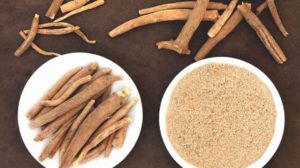 (Per WebMD)
(Per WebMD)
Ashwagandha contains chemicals that might help calm the brain, reduce swelling (inflammation), lower blood pressure, and alter the immune system.
Stress.Taking a specific ashwagandha root extract (KSM66, Ixoreal Biomed) 300 mg twice daily after food for 60 days appears to improve symptoms of stress.
Reducing side effects associated with medications called antipsychotics. Antipsychotics are used to treat schizophrenia but they can cause levels of fat and sugar in the blood to increase. Taking a specific ashwagandha extract (Cap Strelaxin, M/s Pharmanza Herbal Pvt. Ltd., Gujarat, India) 400 mg three times daily for one month might reduce levels of fat and sugar in the blood in people using these medications.
Anxiety. Some clinical research shows that taking ashwagandha can reduce some symptoms of anxiety.
Attention deficit-hyperactivity disorder (ADHD).Some clinical research shows that a combination herbal product containing ashwagandha may improve attention and impulse control in children with ADHD. The effect of ashwagandha alone is unclear.
Bipolar disorder.Taking a specific ashwagandha extract (Sensoril, Natreon, Inc., New Bruswick, New Jersey) for 8 weeks might improve brain function in people being treated for bipolar disorder.
A brain condition called cerebellar ataxia.Preliminary research shows that ashwagandha in combination with an alternative form of medicine known as Ayurvedic therapy might improve balance in people with cerebellar ataxia.
Fatigue in people treated for cancer (chemotherapy).Early research suggests taking a specific ashwagandha extract 2,000 mg (Himalaya Drug Co, New Delhi, India) during chemotherapy treatment might reduce tiredness.
Diabetes. There is some evidence that ashwagandha might reduce blood sugar levels in people with diabetes.
High cholesterol.There is some evidence that ashwagandha might reduce cholesterol levels in patients with high cholesterol.
Male infertility.Some preliminary clinical evidence suggests that ashwagandha might improve sperm quality, but not sperm count, in infertile men. It is not known if taking ashwagandha can actually improve fertility.
Osteoarthritis.Early research shows that ashwagandha taken along with a zinc complex, guggul, and turmeric might improve arthritis symptoms. The impact of ashwagandha alone is unclear.
Obsessive-compulsive disorder (OCD).Early research shows that ashwagandha root extract might reduce symptoms of OCD when taken with prescribed medications for 6 weeks better than taking the prescribed medication alone.
Parkinson’s disease.Preliminary research suggests that a combination of herbs including ashwagandha improves Parkinson’s symptoms. The effect of ashwagandha alone in Parkinson’s is unknown.
Rheumatoid arthritis. Early research shows that ashwagandha powder taken for 3 weeks followed by 4 weeks of sidh makardhwaj (a mixture of gold, mercury, and sulfur) slightly improves symptoms in some people with RA. The impact of ashwagandha alone in RA is unclear.
Increasing interest in sex.Early research shows that taking ashwagandha extract daily for 8 weeks along with receiving counseling increases interest in sex and sexual satisfaction in adult women with sexual dysfunction better than counseling alone.
Also, ashwagandha has shown to be beneficial for:
- Altering immune system function.
- Inducing vomiting.
- Liver problems.
- Preventing the signs of aging.
- Swelling (inflammation).
- Other conditions.
How to Add Ashwagandha to Your Diet

According to Ayurveda, our bodies are woven from food. The nutrients we ingest are metabolized into the energy and information that form our cells, tissues, and organs. Every day our bodies need essential vitamins, minerals, and other nutrients to maintain our body’s delicate balance.
Ashwagandha is classically taken as a fine powder mixed in honey or ghee. In western countries, it typically ingested in capsule form.
The typical recommended dose is 500 to 1,000 mg. For people who suffer from insomnia and anxiety, having a cup of hot milk that contains a teaspoon of powdered ashwagandha or an ashwagandha capsule before bedtime is beneficial.
Special Precautions:
(discuss with your physician before taking Ashwagandha)
Prescription Medications – American Pharmaceutical DRUGS

Before I go to precautions with Ashwagandha, let’s look at the side effects of some commonly prescribed medications before we judge the side effects of this powerful herb.
Let’s compare. Then you decide which is safer.
What I see as the alternatives being prescribed daily in our traditional healthcare system carry MORE serious concerns.
Many traditional medicinal prescriptions carry side effects ranging from leading to addiction to causing dementia or increase risk for suicide. Yet the medical community is concerned about recommending Ashwagandha because why????
Commonly prescribed medications that carry serious side effects include:
- Gabapentin (Seizures, Nerve Pain, Fibromyalgia, Anxiety, Depression, Pain): dementia, addiction (which is rarely listed but increasing problem), suicidal thoughts, life threatening rash, organ failure, blurred vision, kidney problems, could make moods worse, aggressive behavior, chest pain, bloody stools, and more.
- Lamictal (Seizures, Bipolar, Depression, Anxiety) :carries a black box label that can cause life threatening rashes to meningitis to suicidal thoughts. Irritable bowel type symptoms which is NOT listed. – – – My story: I was given this drug for PTSD and Anxiety. My IBS symptoms went from 7 days a week to 1-2x a mo instantly when I stopped this drug several years ago. This drug is also listed on Psycom as “The side effects of Lamotrigine are relatively harmless as compared to other options” REALLY? “Lamotrigine induced mania is usually treated with Topiramate or lithium” (Pscycom) REALLY? Another DRUG to treat a side effect of this drug?
- Paxil (Depression, PMS, PTSD, Anxiety): decreased interest in sex, changes in sexual ability, hallucinations, loss of coordination, severe dizziness, numbness/tingling, easy bruising/bleeding, fast/irregular heartbeat, seizures.
- Xanax (Anxiety, PTSD): hallucinations, thoughts of suicide, slurred speech or difficulty talking, loss of coordination, trouble walking, memory problems, and can lead to addiction.
- Adderall (ADD/ADHD): Psychosis Caused By A Drug, hallucinations, thoughts of suicide, high blood pressure, seizures, anger outbursts, and can lead to addiction.
- Synthroid (thyroid): hair loss, nervousness, mood swings, tiredness, diarrhea, shaking (tremor), headache, shortness of breath, bone pain, easily broken bones, chest pain, fast/irregular heartbeat, swelling, seizures.
Ashwagandha Precautions:
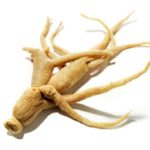
Pregnancyand breast-feeding: Do NOT use ashwagandha if you are pregnant. There is some evidence that ashwagandha might cause miscarriages.
Diabetes: Ashwagandha might lower blood sugar levels. If you have diabetes, monitor your blood sugar closely.
High or low blood pressure: Ashwagandha might decrease blood pressure. Ashwagandha should be used cautiously if you have low blood pressure or take medications for your blood pressure.
Stomach ulcers: Ashwagandha can irritate the gastrointestinal (GI) tract.
“Auto-immune diseases” such as multiple sclerosis (MS), lupus (systemic lupus erythematosus, SLE), rheumatoid arthritis (RA), or other conditions: Ashwagandha might cause the immune system to become more active, and this could increase the symptoms of auto-immune diseases. If you have one of these conditions, it’s best to avoid using ashwagandha.
Surgery: Ashwagandha may slow down the central nervous system. Healthcare providers worry that anesthesia and other medications during and after surgery might increase this effect. Stop taking ashwagandha at least 2 weeks before a scheduled surgery.
Thyroid disorders: Ashwagandha might increase thyroid hormone levels.
Moderate Interactions
(discuss with your physician before taking Ashwagandha):
Ashwagandha may increase the sedative effects of benzodiazepines such as Valium, Ativan, Xanax, and other depressants. It may also interact immunosuppressant medications. Talk with your doctor before beginning a supplement regimen that includes ashwagandha.
In animal studies, high dosages have been linked to toxicity, including impacts on thyroid function; however, human studies are limited.
Medications that decrease the immune system (Immunosuppressants) interacts with ASHWAGANDHA – Ashwagandha seems to increase the immune system. Taking ashwagandha along with medications that decrease the immune system might decrease the effectiveness of medications that decrease the immune system. Some medications that decrease the immune system include azathioprine (Imuran), basiliximab (Simulect), cyclosporine (Neoral, Sandimmune), daclizumab (Zenapax), muromonab-CD3 (OKT3, Orthoclone OKT3), mycophenolate (CellCept), tacrolimus (FK506, Prograf), sirolimus (Rapamune), prednisone (Deltasone, Orasone), corticosteroids (glucocorticoids), and others.
Sedative medications (Benzodiazepines) interacts with ASHWAGANDHA – Ashwagandha might cause sleepiness and drowsiness. Drugs that cause sleepiness and drowsiness are called sedatives. Taking ashwagandha along with sedative medications might cause too much sleepiness. Some of these sedative medications include clonazepam (Klonopin), diazepam (Valium), lorazepam (Ativan), and others.
Sedative medications (CNS depressants) interacts with ASHWAGANDHA – Ashwagandha might cause sleepiness and drowsiness. Medications that cause sleepiness are called sedatives. Taking ashwagandha along with sedative medications might cause too much sleepiness. Some sedative medications include clonazepam (Klonopin), lorazepam (Ativan), phenobarbital (Donnatal), zolpidem (Ambien), and others.
Minor Interactions:
Thyroid hormone interacts with ASHWAGANDHA – The body naturally produces thyroid hormones. Ashwagandha might increase how much thyroid hormone the body produces. Taking ashwagandha with thyroid hormone pills might cause too much thyroid hormone in the body, and increase the effects and side effects of thyroid hormone.
Medical Caution: Always consult with your healthcare practitioner before using supplements if you have any health conditions. Laura Joseph and Healing With Spirit are not licensed medical physicians. Ashwagandha is not recommended for women who are pregnant.
Need More?
Need some guidance or direction?
Want a holistic health consult?
Laura has been providing spiritually based integrative holistic health enrichment services, classes, and programs since 2006. She has experience as a domestic violence advocate, college educator, and over 15 years working in the healthcare industry with multiple certifications in areas in holistic health, spiritually based practices, healing, and more.
Her primary office is located inside Cohasset Medical in seaside Hingham, MA.
To book a consult, contact us here today.
Recommended Resources:
WebMD: Ashwagandha Uses, Side Effects, Interactions, Dosage, and Warning
The Chopra Center: What is Ashwagandha
Dr. Weil: Ashwagandha
Dr. Mark Hyman: Are You Suffering From Adrenal Dysfunction?
Dr. Mercola, DO.: The Healing Wonders of Ashwagandha
Follow me:
Did you know we now have a YouTube channel?
Please subscribe to our channel and scroll for complete playlists on spiritual vlogs, spirit messages, energy updates, nature meditations, mindfulness in nature, reiki and more.
Click here to view my channel and to subscribe.
To schedule a private session, to book a corporate wellness event, or speaking engagement, please private message me
How long is it safe to take Ashwagandha root? I’ve been taking it nearly a year I believe, in a probiotic and feel horribly anxious if I don’t take it. I’m wondering now if I should taper down off of it or continue to take it? If anyone has any suggestions, please let me know. Thank you!
Rhodiola is better, and both, contrary to the mainstream belief, even if they do up regulate the immune and endocrine systems, in reality the calm everything autoimmune included, I have hashimoto thyroiditis and autoimmune dermatitis (as well as adhd, ptsd. Anxiety and depression at times the latter) and yet both worked fabulous on me and rhodiola even better (with no autoimmune sides)
I found this to be quite confusing. I have MS and was considering Ashwagandha – I do not subscribe to traditional medicine. This article says first it could HEAL some diseases in which MS is included. Then later in the article it says people with MS should avoid it! Which is it? Can someone please respond to me on this?
Hi! I love how informative and great your articles are. Can you recommend any other blogs that share information on <a href=”https://fandbrecipes.com/spiritual-awakening/“>Spiritual Awakening</a> or spirituality in general? Thanks a lot!


